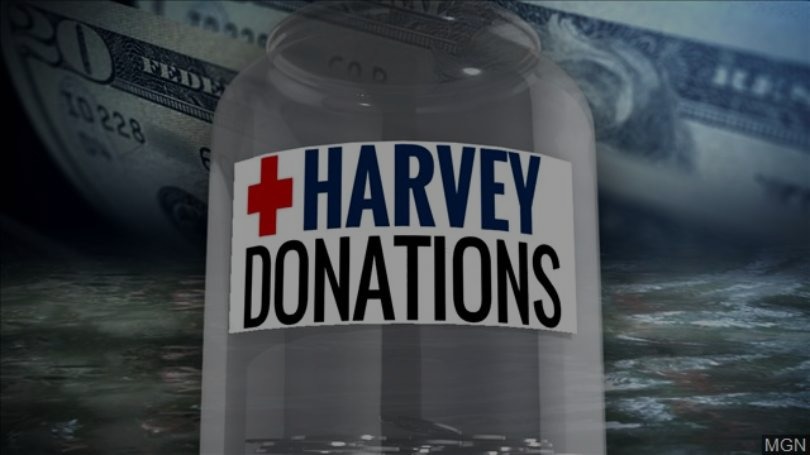You want to donate to help the victims of Hurricane Harvey. You want your donations to go directly to those in need. And you want to get a tax deduction for your donations. Sound like a simple thing to accomplish? It’s not. But we are going to make it clear for you.
Who can I donate to so that I get a tax deduction?
Cash and Non-Cash Donations must be given directly to a charitable organization designated by the IRS as a 501(c)3 Exempt Organization, be a religious organization (such as a church) or a governmental unit. To determine if an organization is an Exempt Organization with the IRS you can go here: IRS Exempt Organization Check. Do not be fooled into giving to organizations that are not recognized by the IRS.
What if I give to a person collectioning donations who will turn them over to a qualifying charity?
My first recommendation to a client is to give directly to the charity yourself. That way you can ensure that your donations go where they are supposed to go and that you get proper substantiation to support your deduction. Using a middleman to handle the donation, while often easier, almost always results in you never having documentation – and often, the middleman who actually donates the cash/non-cash items ends up with the full deduction. We’ll discuss this in a later blog. For the purposes of this article, if you want to ensure the tax deduction – give directly to the charity yourself!
What should I donate? Cash or items that are needed?
When disasters such as Hurricane Harvey hit, many people’s first instinct is to rummage through their homes and collect everything from blankets to water bottles to canned goods and give them to a charity or neighborhood volunteer who is going to ship them to the disaster zone. Unless you’re close to where the disaster took place, all too often these donations never reach the destination, and if they do those donations are underutilized.
This is due to logistics. It takes a lot of money and time to ship the items to their destination, and when the items get there someone has to sort through what was received and who needs it. It’s a labor intensive process at a time when labor power is at a premium.
The easiest thing to donate that provides the fastest relief to the victims is cash. Let the relief organizations who are in the area handle the logistics of purchasing what needs to be bought. Often the first thing in most need is shelter. Donating a can of soup may be seem helpful, but if the victim doesn’t have a can opener, stove, pot, bowl and spoon – that can of soup isn’t as helpful as cash to help provide shelter.
I don’t like donating cash because I don’t trust the charities.
This is the primary reason we hear that people do not like to donate to charities. In a separate blog we will discuss how to identify the best charities to donate to. For now, follow this advice:
- Donate to charities assisting in Hurricane Harvey relief that have a 4 star rating on Charity Navigator. Charity navigator has identified some of the best charities here.
- When you make your donation, ask that your donation be restricted that it must go 100% to support the relief efforts from Hurricane Harvey, and state that your donation may only be used for “program services” and not “administration or fundraising.” If the charity accepts your donations under these terms, then you’ve done your part in making sure that your donations are being used as you intended.
If I donate to an organization like the United Way, and they are helping with relief, why won’t all my donations go for the Hurricane Harvey Relief?
Organizations like the United Way and American Red Cross are world-wide organizations. Just going on United Way’s website and clicking to donate doesn’t ensure where your donations go. However, if you clicked here to go to United Way’s specified Hurricane Harvey donation page, then 100% of individual donations given to the United Way Harvey Relief Fund will be distributed to local United Ways in the affected areas.
“A Portion of the Proceeds” Donations
You’re seeing these crop up all over. An offer to buy a shirt, bag or other items and a portion of the net proceeds goes to help the relief effort. The fact is – typically only pennies on the dollar you spend goes to the relief effort – and usually none of it is tax deductible. That’s because unless you’re making the purchase from the qualified charity itself, whoever you’re buying from gets the full tax deduction because they are the ones making the donation.
If your focus is truly on helping the relief effort, don’t buy a $10 shirt where only 40 cents goes to the relief effort, of which you don’t even get the deduction for that. Give cash or goods where 100% of everything is going directly to the intended cause.
I’m only going to give non-cash contributions. How can I maximize my deduction?
Follow these steps:
- Get the name, address and taxpayer ID# of the charitable organization you are donating to. Using this link verify they are a qualified exempt organization.
- Write down every item that you are donating, and list the estimated cost that you purchased the item for and what the value of it is now. Don’t just list “1 bag of clothes.” A “bag of clothes” may have a thrift shop value of $35, while listing out “7 pairs of blue jeans” may have a thrift shop value of $70. That’s double the tax deduction!
- Get a receipt from the charity! I can’t stress this enough!
- Have a friend that is collecting items? Find out where the items are going and contact the charity directly and ask how you can get a receipt for items a friend is dropping off.
About Pink Harbor
Pink Harbor is a firm specializing in Tax Preparation, Tax Problem Resolution & Business Consulting. We are headquartered in Williamstown, NJ.
For all of your tax and business consulting needs, please make sure to call Pink Harbor at (856) 226-9524 or use the contact us page.






